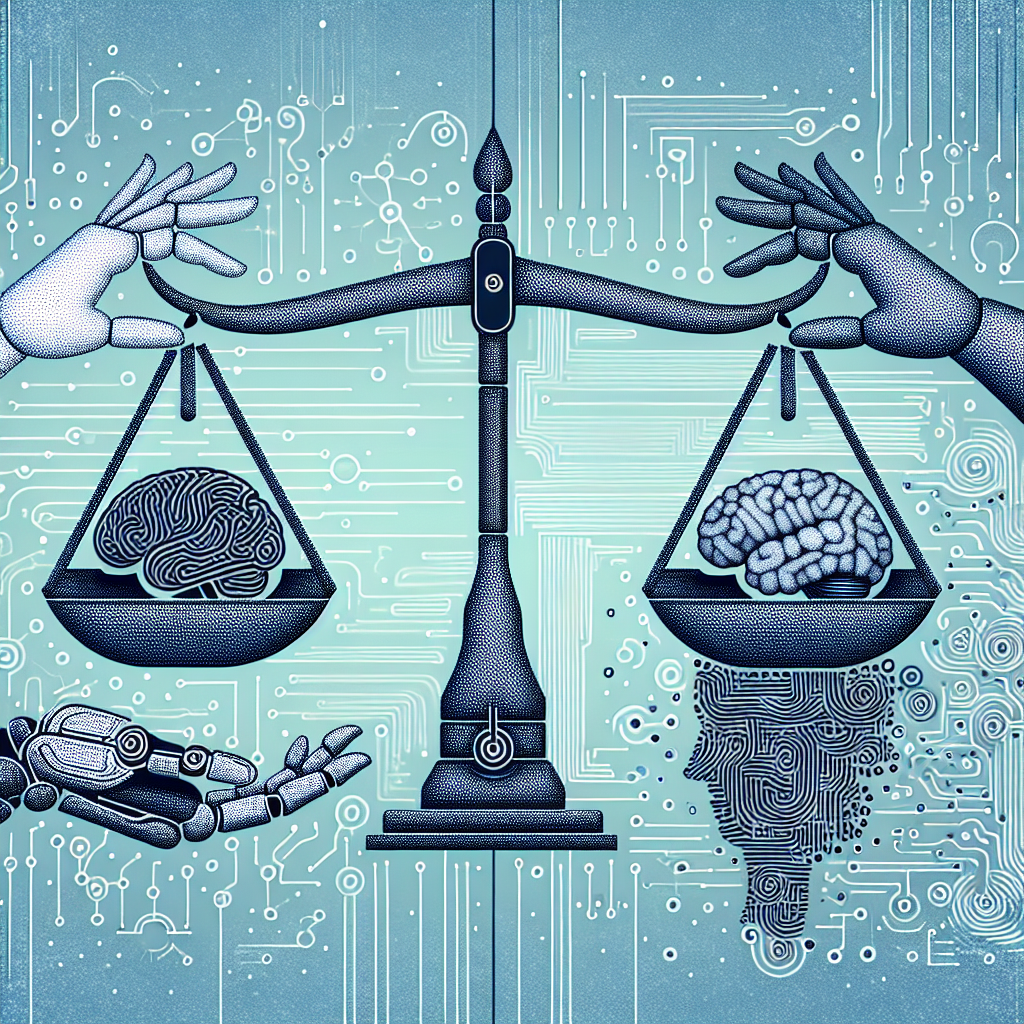Artificial General Intelligence (AGI) refers to the hypothetical intelligence that can understand and learn any intellectual task that a human being can. While current AI systems are limited to specific tasks, AGI aims to replicate human-level intelligence across a wide range of activities. The development of AGI raises a number of ethical implications that need to be carefully considered in order to ensure that this technology is used responsibly and ethically.
One of the key ethical implications of AGI is the potential for job displacement. As AGI systems become more advanced and capable of performing a wide range of tasks, there is a concern that they could replace human workers in many industries. This could lead to widespread unemployment and economic disruption, particularly for low-skilled workers who may not have the skills or education necessary to find new jobs in a rapidly changing economy.
Another ethical concern related to AGI is the potential for bias and discrimination. AI systems are only as good as the data they are trained on, and if that data is biased or incomplete, the AI system may produce biased or discriminatory outcomes. This could have serious consequences in areas such as criminal justice, healthcare, and hiring, where biased decisions could have a significant impact on people’s lives.
There is also a concern about the potential for AGI systems to be used for malicious purposes. If AGI systems fall into the wrong hands, they could be used to carry out cyber attacks, surveillance, or other harmful activities. It is essential that safeguards are put in place to prevent AGI systems from being misused and to ensure that they are used in a way that benefits society as a whole.
In addition to these ethical concerns, there are also questions about the impact of AGI on human society and culture. If AGI systems become more intelligent than humans, what does that mean for our understanding of intelligence and consciousness? Will AGI systems have rights and responsibilities, and if so, how should those be defined and enforced? These are complex questions that will require careful consideration and debate in the years to come.
Despite these ethical implications, there are also many potential benefits to the development of AGI. AGI systems could help us solve some of the most pressing challenges facing society, such as climate change, poverty, and disease. They could also help us make new scientific discoveries and improve our understanding of the world around us. In order to realize these benefits, however, it is essential that we address the ethical implications of AGI and ensure that this technology is developed and used in a responsible and ethical manner.
FAQs
Q: What is the difference between AGI and other forms of AI?
A: AGI refers to a hypothetical form of AI that can understand and learn any intellectual task that a human can. Other forms of AI, such as narrow AI, are designed to perform specific tasks or functions and are not capable of general intelligence.
Q: How close are we to achieving AGI?
A: While significant progress has been made in the field of AI in recent years, we are still a long way from achieving AGI. Researchers are still working to develop the necessary algorithms and technologies to create a truly intelligent machine.
Q: What are some of the potential benefits of AGI?
A: AGI has the potential to help us solve some of the most pressing challenges facing society, such as climate change, poverty, and disease. It could also help us make new scientific discoveries and improve our understanding of the world around us.
Q: What are some of the potential risks of AGI?
A: Some of the potential risks of AGI include job displacement, bias and discrimination, and the potential for misuse by malicious actors. It is essential that we address these risks in order to ensure that AGI is developed and used in a responsible and ethical manner.
In conclusion, the development of AGI raises a number of ethical implications that need to be carefully considered and addressed. While there are many potential benefits to this technology, there are also significant risks that need to be mitigated in order to ensure that AGI is developed and used in a responsible and ethical manner. By addressing these ethical implications and working to develop safeguards and regulations, we can ensure that AGI has a positive impact on society and helps us to build a better future for all.

